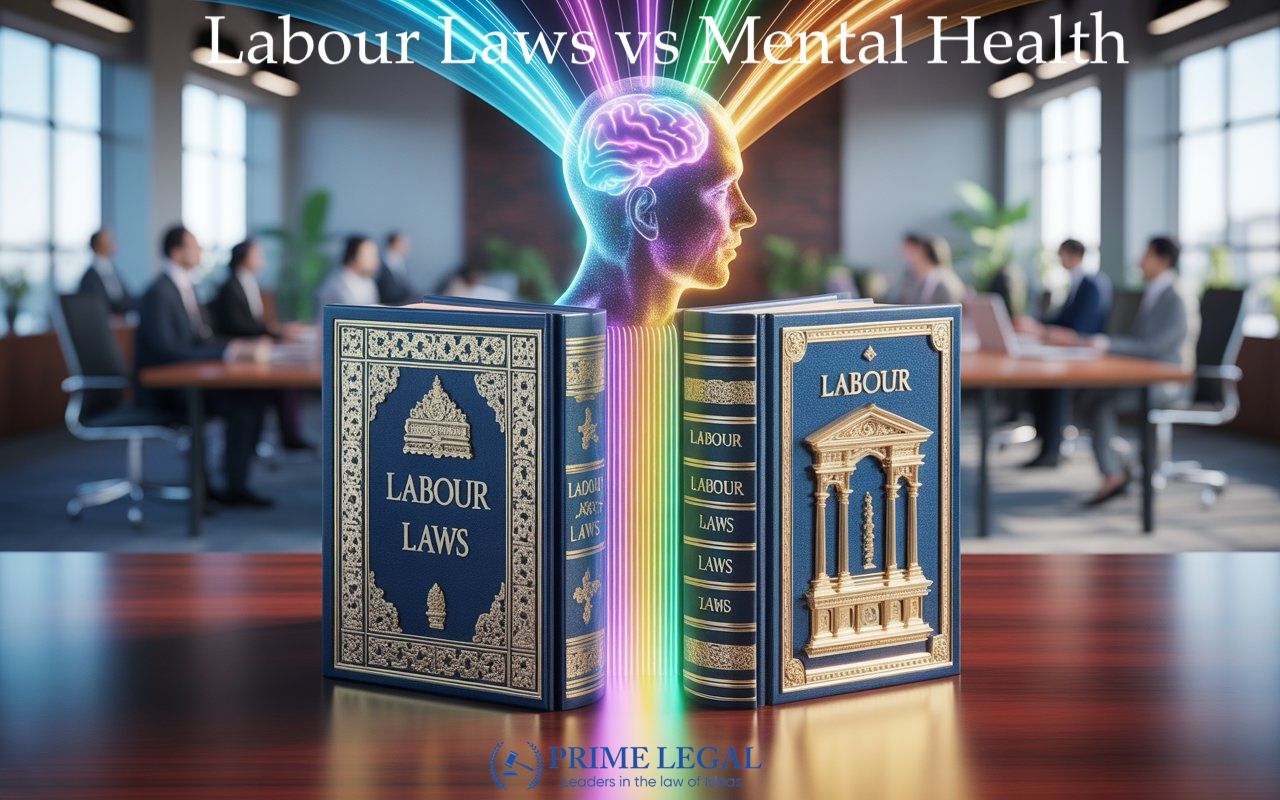Abstract
In today’s world, corporate companies have drowned the market place. However, what about the man force they are employing? How much work is delegated to them and whether they are able to finish it with a peace of mind is still a question that many of us have no answer to. We are taking the comparison between two well known economic powerhouses India and Europe to highlight and understand the major differences in terms of work force and the mental health of the workforce. Although Europe has made significant steps in integrating mental health factors and labour protection policies into its workplace, India is still navigating the same. This article explores these differences, focusing on how mental health laws and labour regulations influence work culture, employee wellbeing, and organizational practices in both regions.
Keywords: Work Culture, Mental health, Labour laws, Comparative analysis
Introduction
Mental health in the workplace has very recently got traction and it is being recognised worldwide and its impact on employee wellbeing. To combat this, the most relevant statute are the labour laws. Labour laws play a great role in shaping how mental health is incorporated by companies. It deals with employee and employer relationships and sets boundaries of power. Now, Europe and India are very different in terms of their culture and economic background but mental health awareness is fundamentally different in both these countries. European laws on mental health have developed to suit the changing times but India is still developing its ideas related to mental health provisions and challenges in enforcement.
Mental Health in Workplace
Without effective support systems in place, even a strong willingness to work by an employee can be undermined by untreated mental health conditions, which may negatively affect an individual’s self-confidence, job satisfaction, work capacity, attendance, and employability. When a workplace fosters a healthy environment with sufficient breaks in between work and fixed working hours, employees feel at ease and tend to work with better productivity. Unhealthy working hours and work that lasts even after the working hours erases the boundary between life and work. This lack of boundary tends to create a lack of work life balance. To counter these problems, countries need Labour laws. Owing to this context, a stark difference can be observed in how the laws are implemented. Europe has a comprehensive framework of laws which is only designed to protect the rights of workers and promote their interests. This is supported by the EU, as it sets minimum standards which its member countries have to imbibe into their national law.
Comparison
India’s labor laws in the corporate sector are historically complex and fragmented, with multiple statutes at both central and state levels governing employment security, wages, and industrial relations, which often makes compliance cumbersome for businesses. India’s laws are fragmented and extensive which means that the laws are made separately by both state and central legislations and they are very different to comply with. The already existing labour laws deal with social security, industrial relations, occupational safety and working conditions. Even with these laws, enforcement of them remains a challenge due to India’s large informal sector. The labour law field is regulated mainly by the Factories Act, 1948, and Shops and Establishment Acts. In this aspect, India imposes limits on working hours and mandates rest periods. Again, enforcement is uneven, and some states have proposed increasing permissible work hours.
Working hours
The European Union has a directive called the Working Time Directive. This establishes a robust framework for work-life balance by mandating a maximum of 48-hour workweek, which includes overtime for its member states. This directive mandates a minimum of at least 11 consecutive hours of daily rest and at least four weeks of paid annual leave, ensuring that employees are afforded adequate recovery time from their work. These protections stem from the EU’s commitment to protecting their workers’ health and well-being. Countries such as France and Spain have built upon these foundational standards by introducing the “Right to Disconnect”, which is a progressive legal movement that prohibits employers from expecting employees to engage in work-related communication outside of formal working hours. For example, under France’s Labour Code (Article L2242-17), companies with more than 50 employees are required to negotiate after-hours email policies. Why this right is important is because of how it is important in preventing burn out in the work environment. To a stark contrast, India’s labour law, particularly the Factories Act, 1948, also sets the limit of maximum weekly working hours to 48 and the daily working hours to 9. However, it does not give any special protection for daily rest like the EU. India does not recognize any legal mechanism called the “Right to disconnect” . As a result, especially in high pressure sectors such as technology and manufacturing, employees often experience long hours, erratic schedules, and an erosion of work-life boundaries. This shows how the EU treats work life balance as something needed but India still is focused on productivity with little to no regard on mental health.
Conclusion
Hence we can see major disparities between India and Europe’s workplace policies in relation to mental health. Europe’s labour framework is characterized by harmonized, comprehensive legislation that robustly protects employee rights, enforces work-life balance, and promotes inclusivity. EU directives such as the Working Time Directive ensure to protect the rights of workers. It is pertinent to note that mental health is still a concept that India is navigating.
“PRIME LEGAL is a full-service law firm that has won a National Award and has more than 20 years of experience in an array of sectors and practice areas. Prime legal falls into the category of best law firm, best lawyer, best family lawyer, best divorce lawyer, best divorce law firm, best criminal lawyer, best criminal law firm, best consumer lawyer, best civil lawyer.”
WRITTEN BY S. KAVIYA SRI


